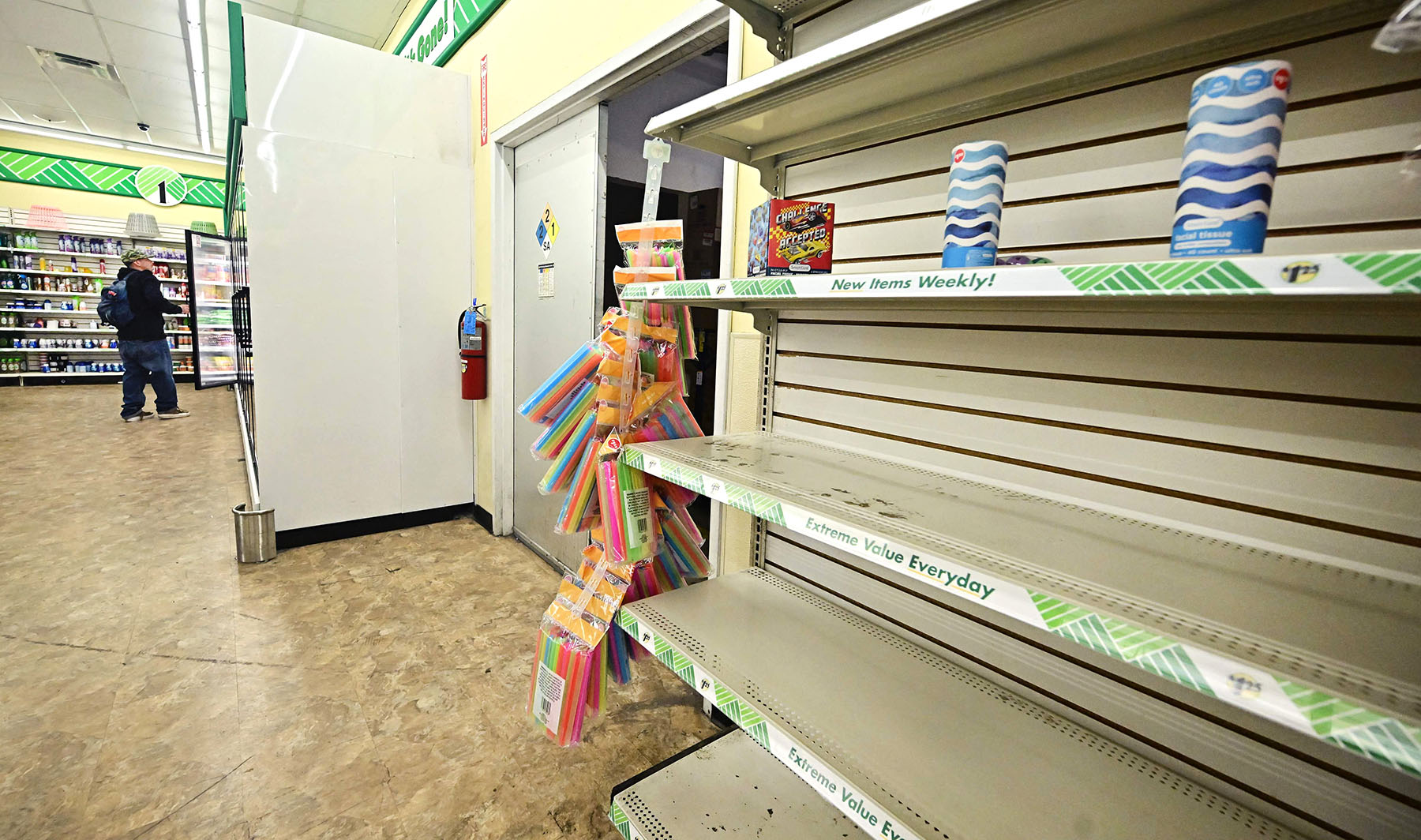
US shoppers are facing the possibility of far fewer goods in stores starting in a few weeks, as the steep tariffs on China have caused a drop in shipments arriving at ports nationwide, experts say.
The 145 percent tariff announced by United States President Donald Trump last month on Chinese imports is causing some ships to arrive half empty.
Gene Seroka, executive director of the Port of Los Angeles, said in a statement this week that the port was down about 35 percent compared with the corresponding time last year, and the cargo ships coming in are the first ones to be attached to the tariffs that were levied against China and other locations last month.
READ MORE: Neil Bush: China-US trade win-win for both
While the Port of Los Angeles was scheduled to have 80 ships this month, 20 percent of them were canceled, he said. Next month, about 13 sailings have also been canceled, Seroka told CNN. Goods from China have fallen by about 50 percent.
In a sign of a possible breakthrough on the tariffs, the Trump administration announced on Tuesday that Treasury Secretary Scott Bessent and Trade Representative Jamieson Greer will meet Chinese officials this weekend in Geneva, Switzerland, for talks.
A Chinese Commerce Ministry spokesperson said, "The Chinese side carefully evaluated the information from the US side and decided to agree to have contact with the US side after fully considering global expectations, Chinese interests and calls from US businesses and consumers."
If nothing changes, consumers could feel the effects of a shortage and higher prices in a few weeks because of a lack of container ships, said a report by Apollo Global Management, a private equity company in New York.
The report estimated that it takes about 20 to 40 days for a container ship to sail to the US, then 10 more days for goods to arrive in cities. By the middle of this month, the container ships that used to arrive in US ports will stop, and it is then that consumers could see "empty shelves", the Apollo report in USA Today said.
Jonathan Gold, the National Retail Federation's vice-president of supply chain and customs policy, monitors ports and cargo volume with the federation's Port Tracker. He told China Daily that "cargo volumes will significantly decline because of canceled or delayed orders due to the tariffs".
China, the US' third-largest trading partner, sent $438.9 billion in goods to the US last year, up 2.8 percent, or $12.1 billion, from 2023, according to the Office of the US Trade Representative.
Top items
Some of the top items included smartphones, computers, batteries, motor vehicle parts, toys, lighting and furniture. Plastic items, chairs, water heaters, hair dryers and video monitors are also prominent.
The US toy industry is one of the top importers from China. At least 75 percent of all toys sold in the United States are imported, the US Department of Commerce says.
Many of the firms facing massive bills on imports, especially small businesses, are refusing to pay for the goods, instead leaving them at warehouses in China to see what happens. Others admit they will have to raise prices to offset the extra costs.
"US retailers will have to pay higher wholesale prices for imported consumer goods," said Thomas Fullerton, an economist and a professor at The University of Texas at El Paso. "Lower-income US consumers" will bear the brunt of the higher costs, he said.
Amid uncertainty, retailers, especially some of the biggest — such as Target and Walmart — have tried to stay ahead of the tariffs by importing a vast amount of goods earlier than usual from China, shipping experts said.
ALSO READ: Tariff barrage hits harder in Washington
"Retailers have been working to mitigate the impact of tariffs for some time, including front-loading cargo when possible," Gold said.
"As a result of these efforts, higher import levels were noted in the latest Global Port Tracker."
The chief executives of Walmart, Home Depot and Target met Trump at the White House last month to convey that there could soon be much fewer goods and higher costs for US consumers because of the tariffs.
The US retail industry is the country's largest private sector employer, contributing $5.3 trillion to annual GDP and accounting for one in four US jobs held by more than 55 million people, according to the National Retail Federation.
"The uncertainty around the tariffs is challenging for businesses," Gold said.
belindarobinson@chinadailyusa.com


